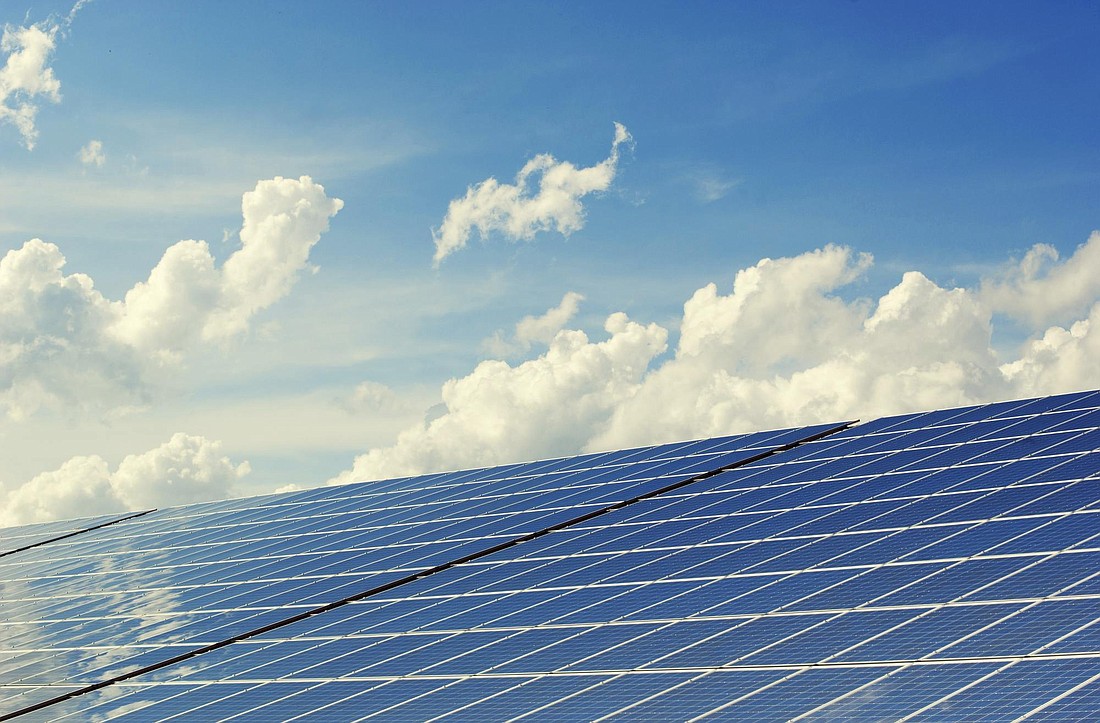- January 16, 2025
-
-
Loading

Loading

State utility regulators Tuesday, Oct. 26, approved a series of base-rate increases for Florida Power & Light that will result in higher monthly bills for customers in January.
Despite opponents’ arguments that residential and small business customers will end up subsidizing costs for some larger customers, the Public Service Commission unanimously supported a four-year rate settlement, which calls for a $692 million increase in base rates in January and another increase of $560 million in 2023. Additional increases are planned in 2024 and 2025 to pay for solar projects.
Commission Chairman Gary Clark noted receiving more than 1,100 emails from consumers about the proposal and indicated he had concerns about ratepayers subsidizing FPL’s solar expansion and a electric-vehicle charging station program. But, Clark said he understands the need for clean energy investments and pointed to other benefits of the settlement, such as predictability in rates.
“There are things within that predictability that I think give homeowners, give businesses some assurity going into the future, that they have a stable rate climate, they can do their budgeting accordingly,” Clark said. “I think that is a very positive, very positive thing.”
Commissioners also added a requirement for annual reports on the company’s expansion of infrastructure for electric vehicles.
FPL reached the rate settlement in August with the state Office of Public Counsel, which represents consumers; the Florida Retail Federation; the Florida Industrial Power Users Group; and the Southern Alliance for Clean Energy. Three other parties later signed on.
The rate plan incorporates the merger of FPL and Northwest Florida’s Gulf Power. That merger formally took effect Jan. 1, but it came with issues such as the utilities having widely different rates.
In a prepared statement, FPL President and CEO Eric Silagy said the deal benefits all customers by keeping “bills low” while “accelerating investments in clean energy.”
“Florida is a rapidly growing state on the front lines of climate change, and our customers deserve bold, decisive, long-term actions as we continue building a more resilient and sustainable energy future all of us can depend on, including future generations,” Silagy said in the statement.
For customers outside of Northwest Florida who use 1,000 kilowatt hours of electricity a month, bills are expected to go from the current $101.70 to $113.85 in January. Those bills would increase to $115.52 in 2023, $116.05 in 2024, and $117.02 in 2025. In addition to base rates, the totals include costs for such things as natural gas for power plants.
The plan uses what is described as a “transition rider” to take into account the substantially different rates that FPL and Gulf have charged. The result will leave Northwest Florida customers paying more than FPL customers in other areas.
Under the plan, Gulf residential customers who use 1,000 kilowatt hours a month will see their bills go from the current $129.24 to $137.49 in January. They then would see the bills decrease to $134.44 in 2023, $130.25 in 2024 and $126.47 in 2025.
FPL filed a base-rate proposal in March and then negotiated the settlement, which trimmed the original proposal by about $428 million. The settlement, in part, reduced a targeted return on equity -- a closely watched measure of profitability -- from 11.5 percent to 10.6 percent.
“I believe that all of the parties are to be commended for the outstanding job that you did, negotiating on behalf of the folks that you represented,” Clark said. “It's pretty obvious some of you did a little better job than others.”
But the settlement was opposed by Floridians Against Increased Rates, the League of United Latin American Citizens of Florida, the Environmental Confederation of Southwest Florida and Florida Rising, which have members who are residential customers of FPL.
Those groups argued, in part, that the plan will require residential and small business customers to subsidize the rates of large commercial and industrial customers.
“To put it succinctly, a settlement that includes so much wasteful spending to double down on fossil fuels, that transfers so much wealth from residential customers to commercial and industrial customers, and that literally leaves residential customers worse off than in FPL's original proposal, cannot be in the public interest,” attorneys for the League of United Latin American Citizens, the Environmental Confederation of Southwest Florida and Florida Rising wrote in an Oct. 11 brief. “This ‘settlement’ gives FPL everything they want -- and more.”
The agreement addresses a series of solar-energy issues, which FPL said will support the development of 16 million solar panels at more than 50 sites across Florida. FPL has been operating under a base-rate settlement that took effect in January 2017 and will end in December.